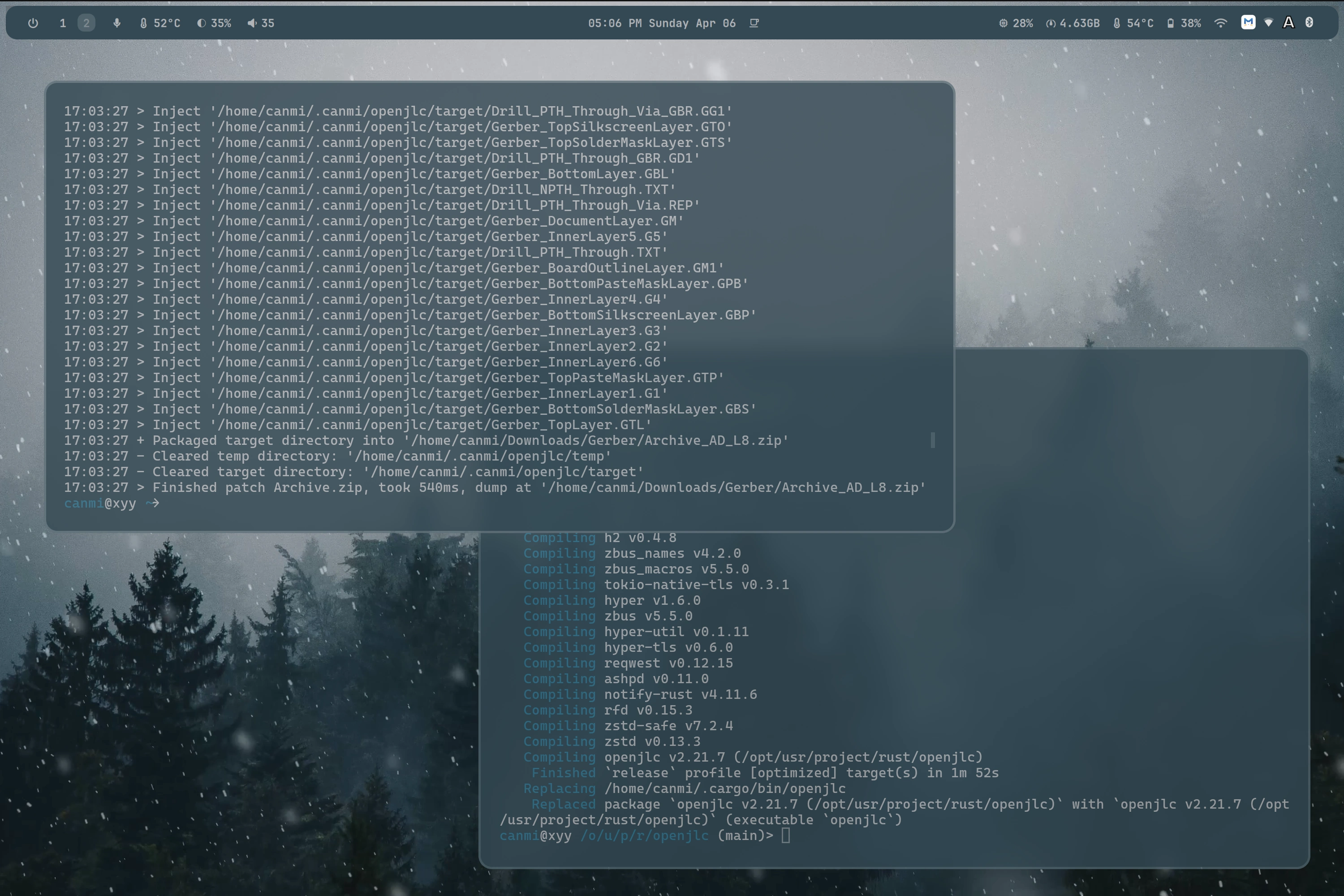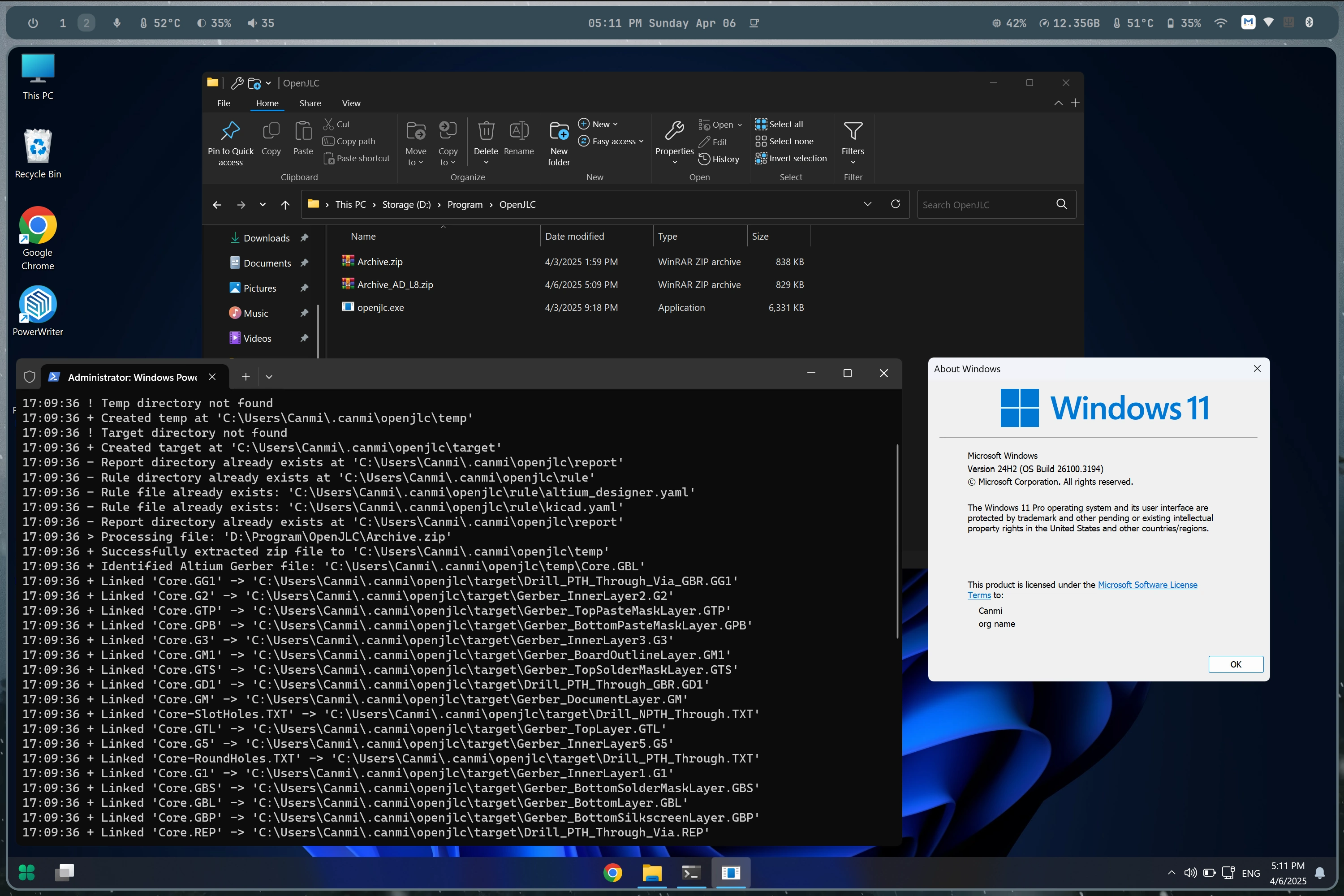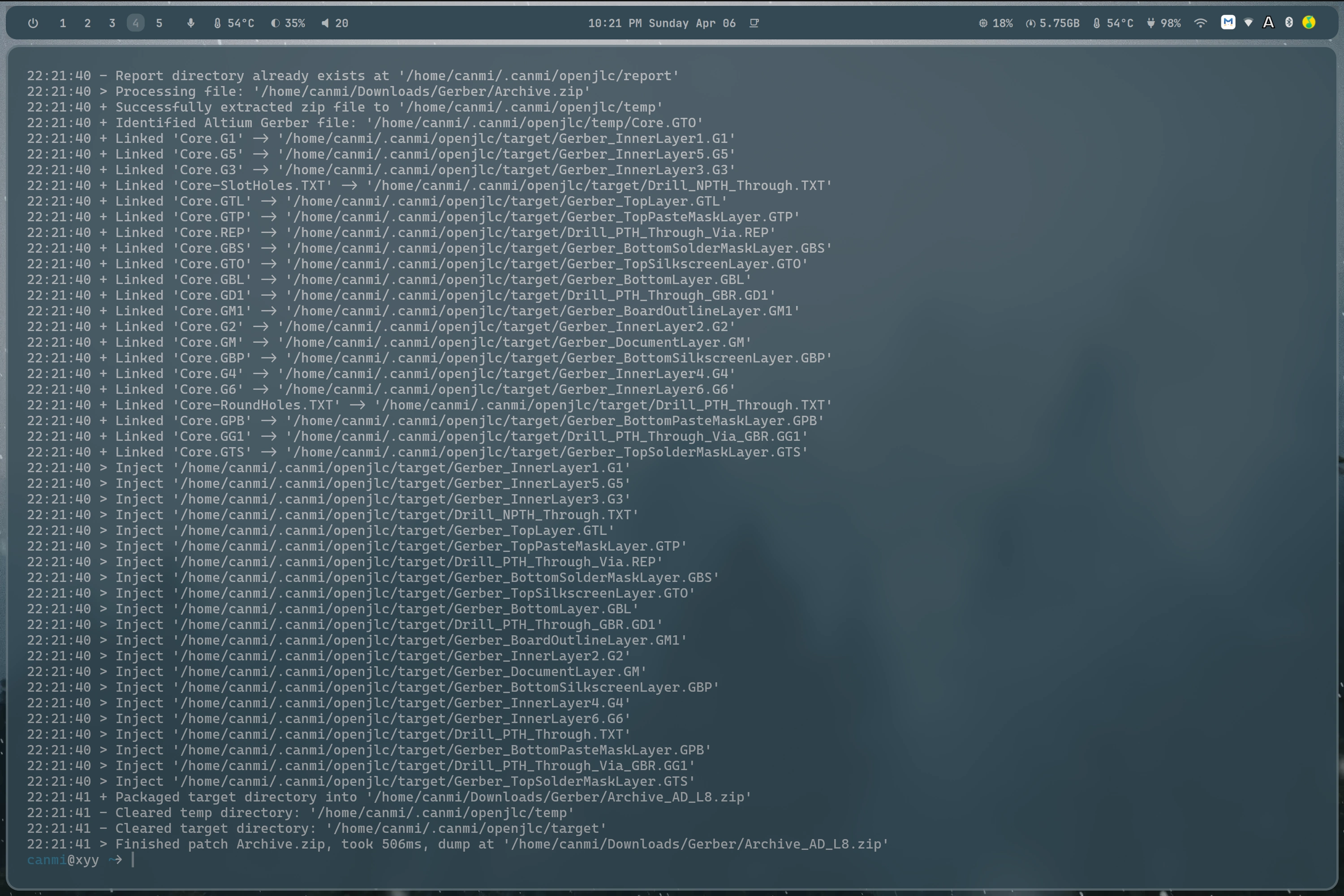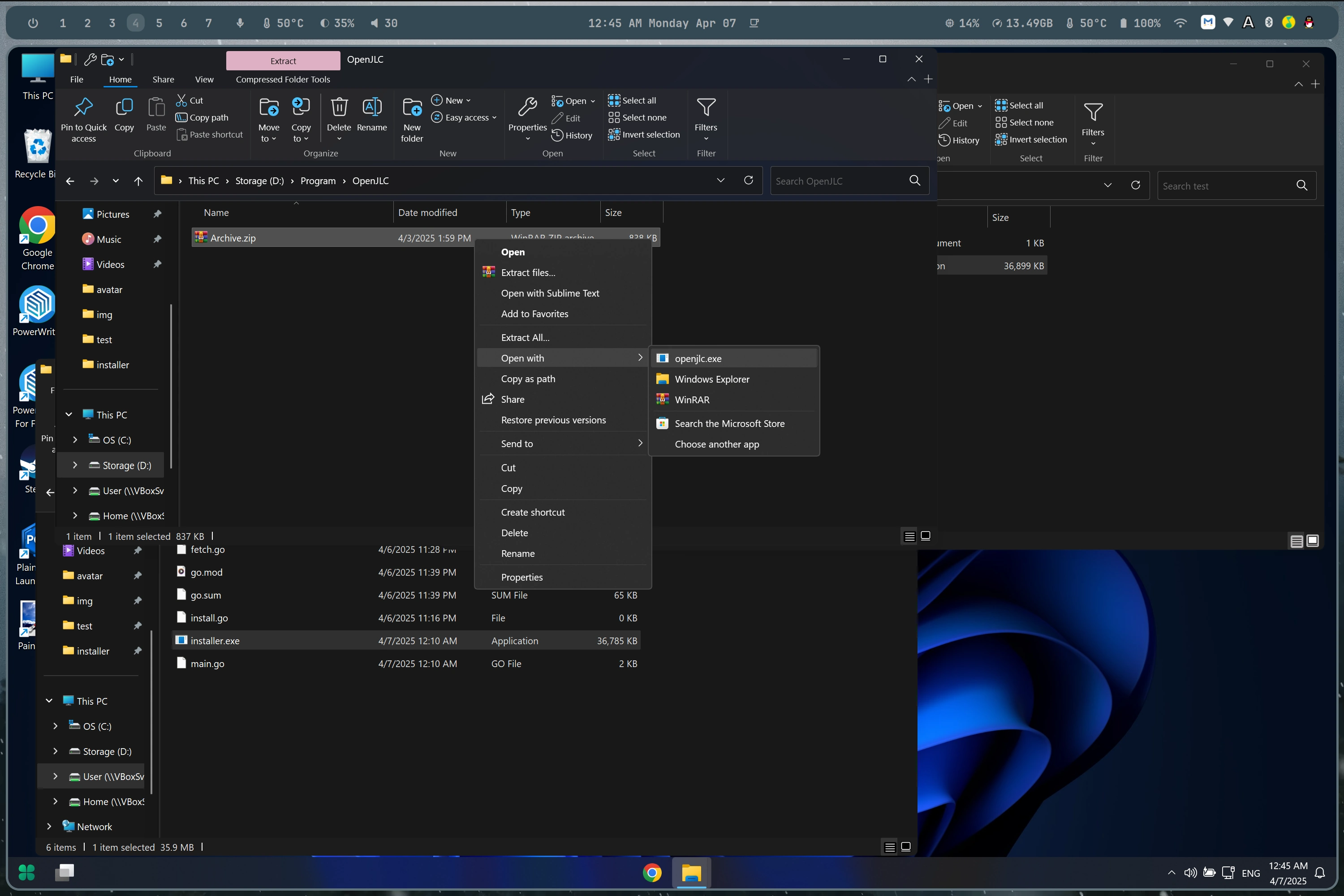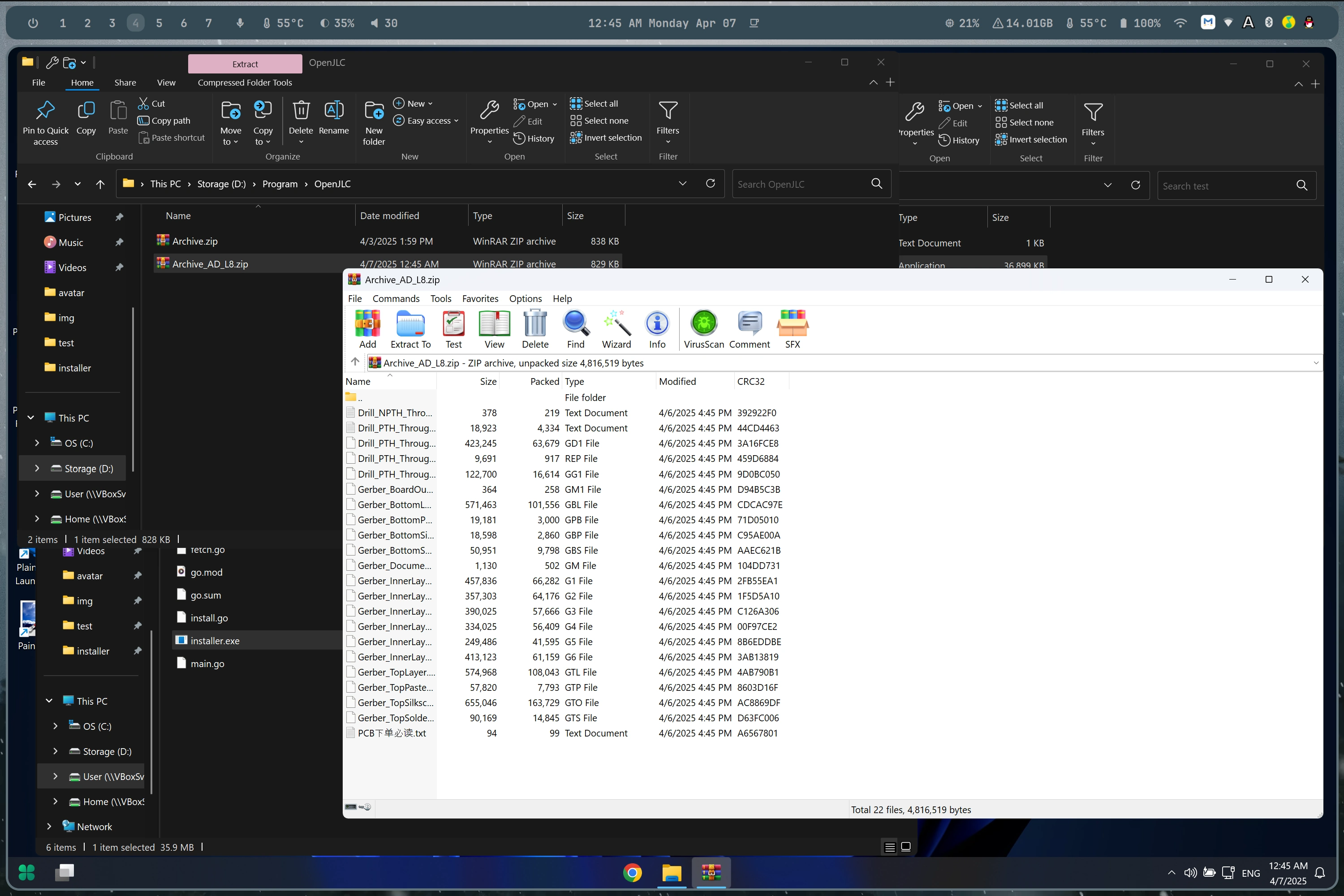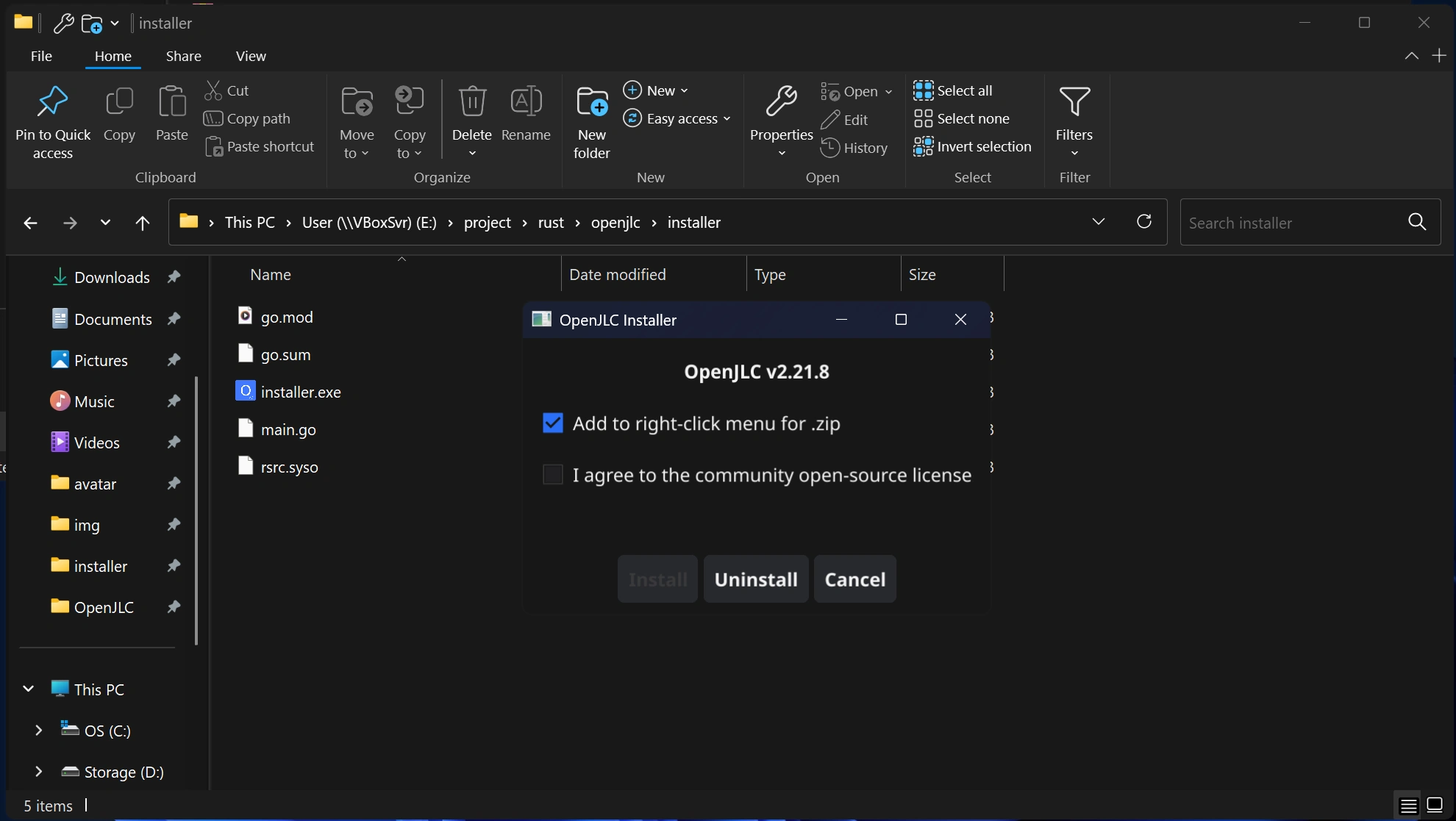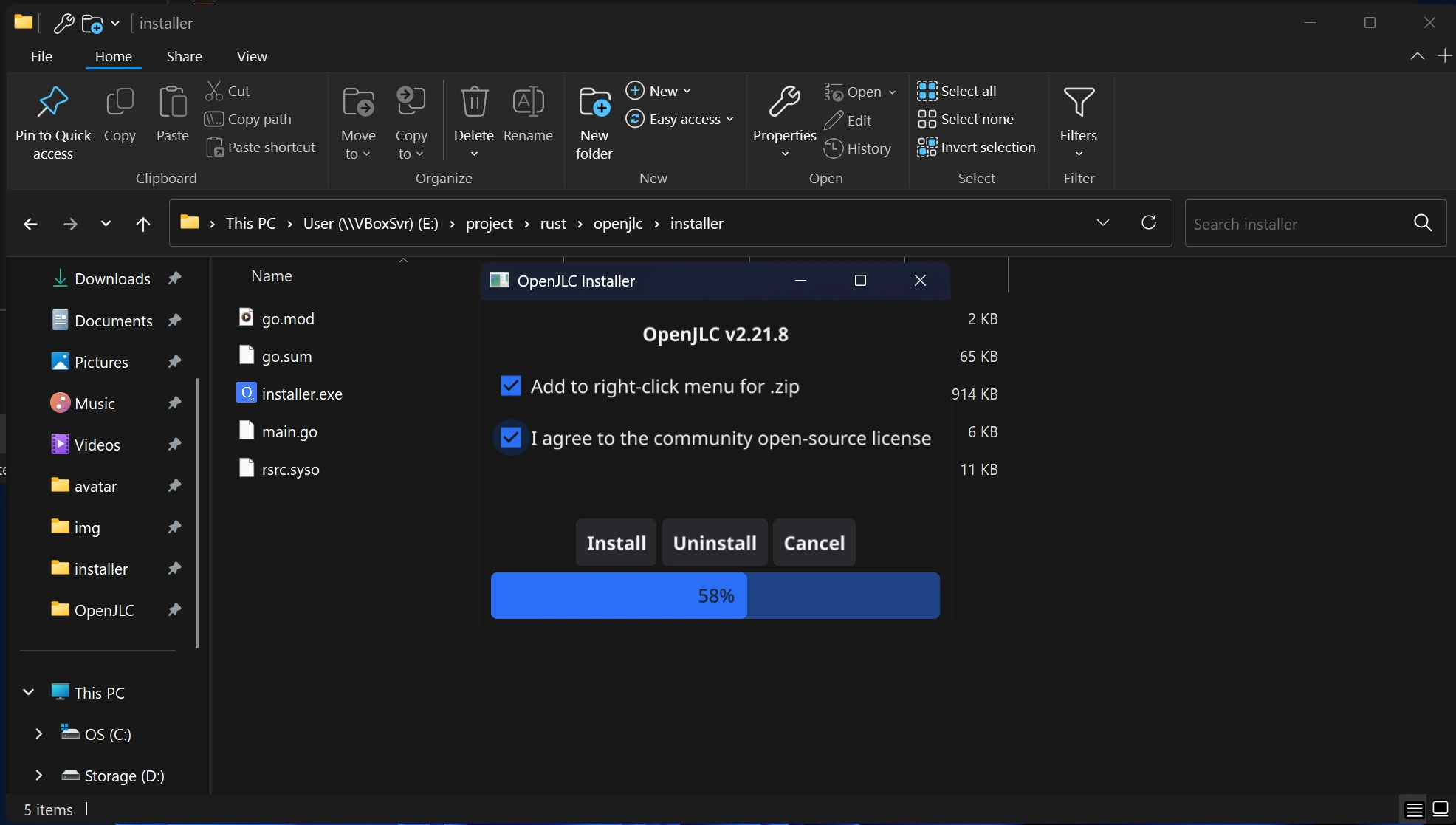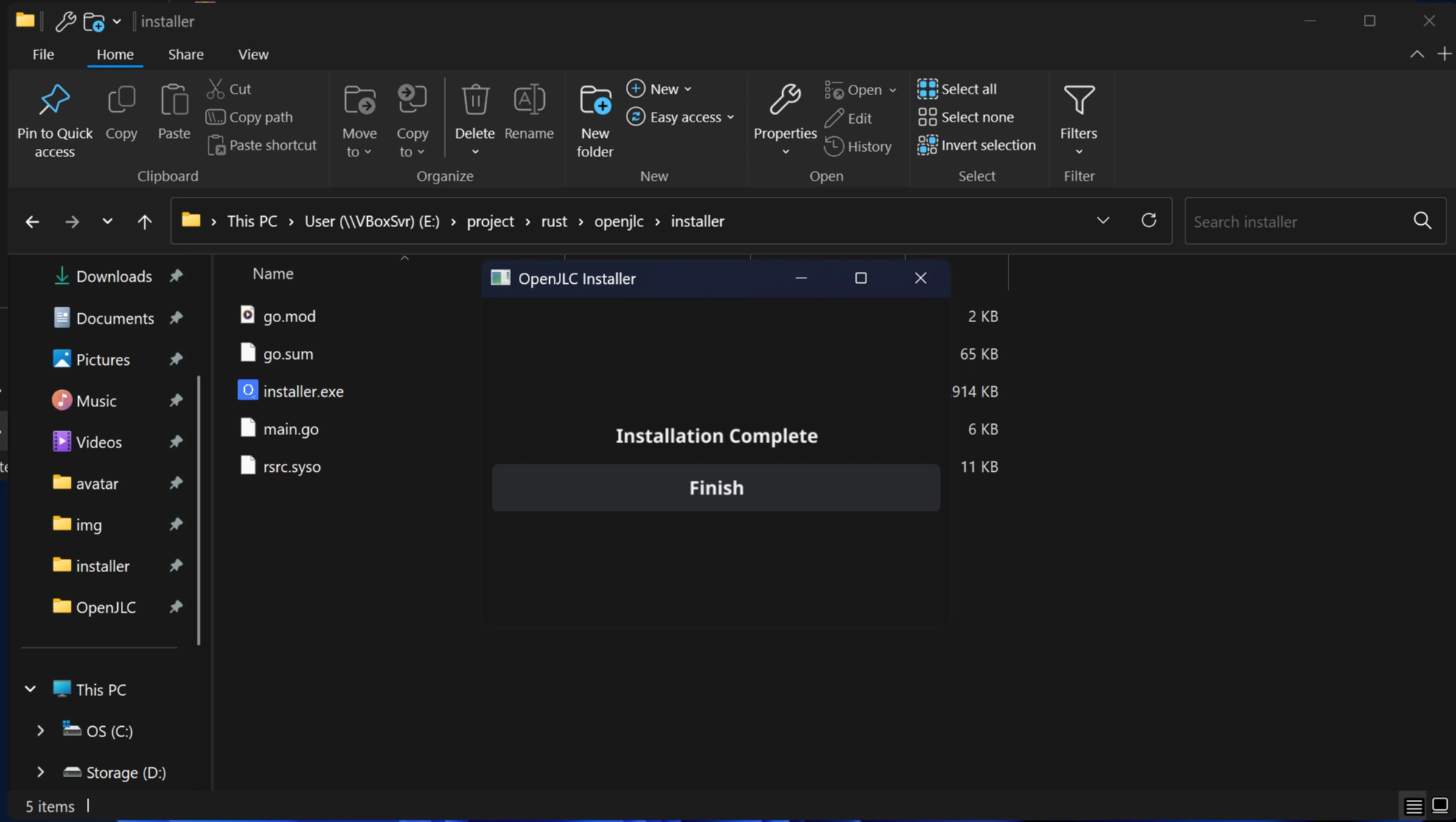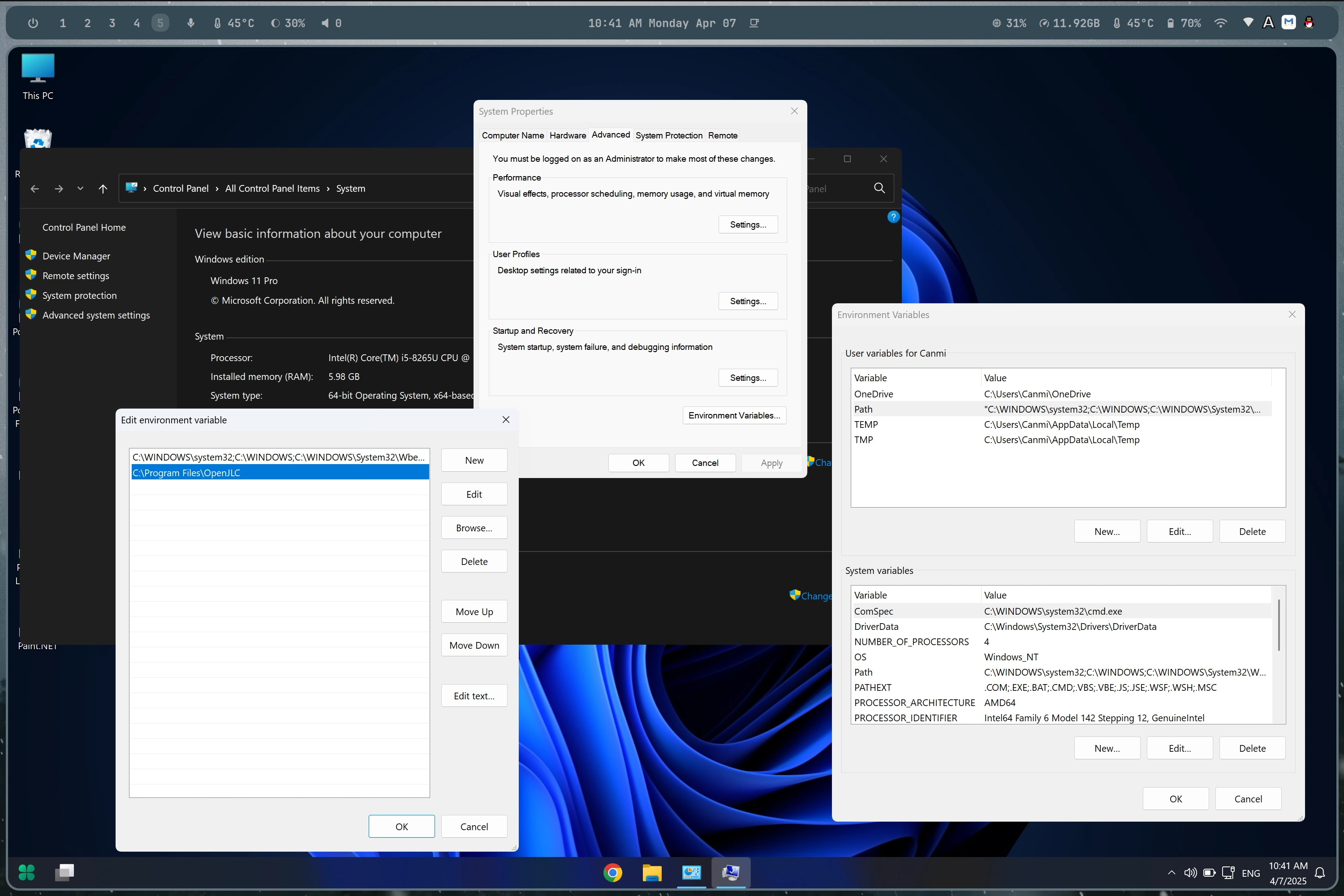As they say, your design workflow shouldn't be bogged down by tedious format conversions! OpenJLC simplifies Gerber to JLC conversion from AD, KiCad, and more. Effortlessly convert, share, and design.
Whether for users or professional developers, OpenJLC will be your open information playground. Please be aware that OpenJLC is currently under active development, and feedback is welcome for any issue encountered.
Feel free to try it using the following methods:
| 🚀 Install via Cargo | cargo install openjlc |
| 📦 Arch Linux AUR | Install via: yay -S openjlc |
| ❇️ Cross-platform builds | Prebuilt binaries for Linux, Windows, macOS available on releases |
| ⚡️ Run directly | openjlc file.zip or path_to_file/file.zip |
| 🗂️ Supported input formats | KiCad, Altium Designer, EasyEDA — and more on the way! |
| 🛠️ Gerber analyzer | Auto label output file with -{detected-eda}-L{layer} |
| 🔄 Fast updates | Track latest changes via ci |
| 📣 Contribute / Feedback | Create issues, pull requests, or just ⭐ the repo to support us! |
Powered by Rust's high performance, OpenJLC can convert an 8-layer PCB from Altium in under 500ms.
We provide powerful regular expression rules to auto-analyze and rename output files, giving you a clean and consistent output structure.
Unlike other conversion tools, OpenJLC supports auto-detection and classification of drill files — no manual steps required.
Altium
Drill_NPTH_Through: "(?i).*slot\\s?h?oles.*\\.txt$"
Drill_PTH_Through: "(?i).*round\\s?h?oles.*\\.txt$"
Drill_PTH_Through_Via: "(?i)\\.REP$|.*via.*\\.txt$"
Drill_PTH_Through_GBR: "(?i)\\.GD1$"
Drill_PTH_Through_Via_GBR: "(?i)\\.GG1$"KiCad
Drill_PTH_Through: "(?i)(?!.*NPTH).*\\.DRL$"
Drill_PTH_Through_Via: "(?i).*\\bVIA\\b.*\\.DRL$"
Drill_NPTH_Through: "(?i).*\\bNPTH\\b.*\\.DRL$"
Drill_PTH_Through_GBR: "(?i)^[^N]*PTH[^N]*\\.GBR$"
Drill_PTH_Through_Via_GBR: "(?i).*\\bVIA\\b.*\\.GBR$"
Drill_NPTH_Through_GBR: "(?i).*\\bNPTH\\b.*\\.GBR$"On Windows, OpenJLC supports seamless right-click processing for .zip Gerber archives. With just one click, you can get clean and correctly named outputs — even after processing by the Windows file system.
We offer a dedicated Windows GUI installer to simplify setup. With just a few clicks, you can install, update, or uninstall OpenJLC — all without touching the command line.
Q: PowerShell says openjlc is not recognized as a command?
A: This usually means the OpenJLC installation path is not added to your system's environment variables.
Please follow the instructions shown in the image below to add it. Restart PowerShell after applying the changes.
Q: What if I'm using Linux or macOS?
A: Make sure the Cargo binary directory (usually $HOME/.cargo/bin) is added to your shell's environment variables.
For example, if you're using bash, zsh or fish, you can add the following line to your ~/.bashrc, ~/.zshrc ~/.config/fish/config.fish file:
export PATH="$HOME/.cargo/bin:$PATH"Then reload your shell or run:
source ~/.bashrc # or source ~/.zshrcIf you're using fish shell, add the path like this:
set -U fish_user_paths /home/canmi/.cargo/bin $fish_user_pathsAnd reload the config:
source ~/.config/fish/config.fishIf you are just a user of OpenJLC, please give us a Star. If you’d like to participate in development, you can consider the following steps:
The main program is written in Rust:
cargo run
cargo build
cargo install --path .The Windows installer is written in Go:
GOOS=windows GOARCH=amd64 CGO_ENABLED=1 CC=x86_64-w64-mingw32-gcc go build -x -ldflags="-H=windowsgui" -o installer.exeAdditionally, there is an old version written in Python here. The source code is still visible but is no longer maintained or used.








